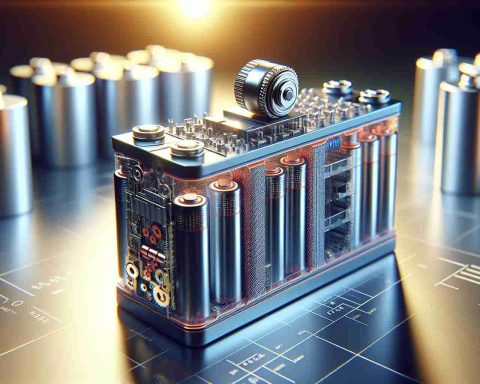The Future of Compact Cars
The 2026 Toyota Corolla is set to make waves with its much-anticipated release next year. Designed with input from the acclaimed digital artist Theottle, the latest version of this beloved compact car is rumored to draw aesthetic cues from the JDM Crown Sport crossover while boasting a bolder, more angular design reminiscent of the larger Camry.
Traditionally available as both a five-door hatch and a four-door sedan, the Corolla is expected to maintain this versatile format, adapting to meet the evolving preferences in the compact car landscape. Changes are afoot in response to the modern demands of drivers, particularly with an emphasis on efficiency.
Recent insights from Japan suggest this new Corolla will feature a sleeker design aimed at enhancing aerodynamics for improved range, particularly in its future electrified configurations. These new plug-in hybrid models could potentially offer an impressive driving range of up to 2100 kilometers on a single fill-up, thanks to the introduction of a next-generation 1.5-liter engine and innovative battery technologies.
Though solid-state batteries are on Toyota’s agenda for high-end vehicles by 2027, the Corolla’s plug-in hybrid version is expected to utilize bi-polar lithium-iron phosphate batteries. These cutting-edge batteries promise a 20% boost in driving range and quicker charging times, ensuring that the Corolla remains a forefront contender in the competitive compact car market.
Revolutionizing the Compact Car: What to Expect from the 2026 Toyota Corolla
The Future of Compact Cars
The upcoming 2026 Toyota Corolla is gearing up to make a significant impact in the compact car segment, blending innovative design with advanced technologies aimed at meeting contemporary consumer demands. Here’s a deeper look at what makes this model stand out, along with insights into its features, market positioning, and potential impact on sustainability.
Key Features and Innovations
1. Sleek Aerodynamic Design: In a bid to enhance efficiency, the 2026 Corolla will sport a more aerodynamic silhouette. This change not only contributes to fuel efficiency but also increases overall performance, which is particularly crucial for electric and hybrid models.
2. Cutting-edge Powertrain: The Corolla is expected to debut a new 1.5-liter engine alongside a bi-polar lithium-iron phosphate battery for its plug-in hybrid variant. This combination is projected to deliver a 20% increase in driving range, making it more competitive in the eco-friendly car market.
3. Electrification and Range: With the potential to achieve an impressive driving range of up to 2100 kilometers on a single full charge, the 2026 Corolla aims to entice a broader audience, especially those considering the shift to plug-in hybrid vehicles. This expansive range underlines Toyota’s commitment to providing versatile and sustainable driving solutions.
Pros and Cons of the 2026 Toyota Corolla
Pros:
– Enhanced driving range with hybrid technology.
– Modern, aerodynamic design that boosts efficiency.
– Versatile options with both hatchback and sedan formats.
Cons:
– Potential limitations on sporty performance due to design focus on efficiency.
– Solid-state batteries are not yet implemented, potentially delaying high-end features.
Market Trends and Predictions
As the global automotive market increasingly shifts toward electrification, the Corolla enters a competitive landscape filled with new entrants and established brands ramping up their EV offerings. The introduction of the 2026 model aligns with broader industry trends characterized by:
– Increased Consumer Demand for Sustainability: Many consumers are seeking vehicles that reduce their carbon footprint. Thus, Toyota’s focus on hybrid technology in the Corolla is well-aligned with market expectations.
– Competitive Pricing Strategy: While specific pricing details are yet to be announced, maintaining an affordable price point will be crucial for Toyota to attract buyers amid the surge of premium electric vehicles.
Sustainability and Security Aspects
The integration of more sustainable battery technologies in the 2026 Corolla underscores Toyota’s dedication to reducing environmental impact. By opting for lithium-iron phosphate, the model enhances lifecycle sustainability while ensuring safer battery production compared to traditional lithium-ion options.
Moreover, Toyota’s commitment to vehicle safety technology will likely continue in the new Corolla, as autonomous driving features and advanced driver-assistance systems (ADAS) become increasingly ubiquitous across new models.
Conclusion
The 2026 Toyota Corolla is poised to redefine expectations for compact cars through its innovative technology, sleek designs, and an emphasis on sustainability. As we approach its release, enthusiasts and consumers alike will be eagerly anticipating this balanced fusion of performance, efficiency, and modern style. To stay updated, visit Toyota’s official website for the latest news and developments on this eagerly awaited model.











